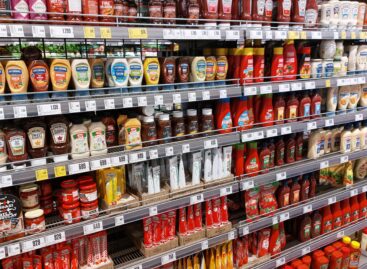Shopping experience and social responsibility – AI in the beauty industry
AI-driven developments are booming in every sector and the beauty industry is no exception. AI technology has fundamentally transformed the way consumers interact with beauty products, together with the way brands promote and sell them.
This article is available for reading in Trade magazin 2024/8-9
AI assistants and virtual trial
From the virtual trial experience to personalised skincare recommendations, AI and AR have opened up a world of possibilities, bringing unprecedented development to the beauty care segment. Probably one of the most popular innovations among shoppers is the possibility of AI and AR-based virtual trials. Respondents in a survey by Snap Inc. said they would use AI and AR when shopping, primarily to select the right size/colour/ingredient, to simplify the shopping process, for the sake of online fun and experience, and to ask family members and friends for their opinions before making a purchase.
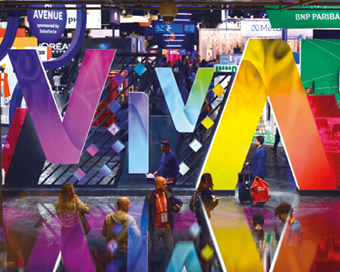
VivaTech is the global epicentre of technology and innovation meetings, with this year’s event showcasing the latest and most tangible AI solutions
For instance the AI-powered L’Oréal Paris Beauty Genius all-in-one beauty assistant supports consumer decisions based on the company’s own beauty information, following personalised diagnostics.
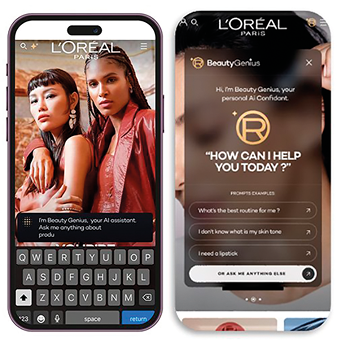
AI-powered L’Oréal Paris Beauty Genius can make recommendations for more than 750 products based on individual needs and requirements
AI-based accessibility
AI assistants also seem to be working well as a tool for achieving responsible social goals. In early 2023 Estée Lauder launched its voice-enabled makeup assistant (VMA), an AI-powered mobile app designed to help visually impaired users by supporting easier and more confident makeup application. Also last year L’Oréal brought a new solution for people with physical disabilities to VivaTech: the technology offers users with limited mobility in their hands and arms the experience of applying makeup with ease and precision. Algorithms of AI-based beauty platforms analyse the user’s skin type, skin problems and environmental factors to provide personalised product recommendations tailored to individual needs. Sephora has announced the launch of its new skin diagnostic tool last year: retailers can use Smart Skin Scan to personalise the in-store experience and improve in-store customer engagement.
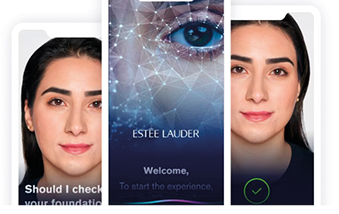
Estée Lauder voice make-up assistant lends a helping hand to visually impaired users
Revolutionising hair care
There is a joint app by Swiss beauty company Marionnaud and software firm Revieve, called Hair Care Advisor, which integrates Revieve’s own selfie hair diagnostic technology, user input, and AI-based personalised recommendations into a single interactive experience, to support the wellbeing and self-care of users. Besides supporting consumer decisions, AI has also begun to transform how brands communicate with consumers.
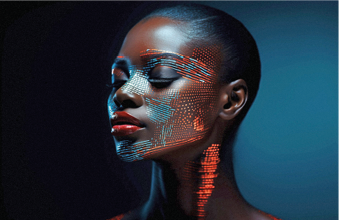
L’Oréal’s generative AI-powered CREAITECH provides localised content for the company’s beauty brands
AI innovation lab continues the global strategic cooperation between Estée Lauder Companies and Microsoft Corp that started in 2017, and one of its objectives is to respond more quickly to social trends and consumer needs in practice. The generative AI chatbot uses advanced conversational AI technology to more effectively leverage Estee Lauder’s product database for localising marketing campaigns in a relevant way. //
Related news
Forced paths: trends and decisions in 2026
🎧 Hallgasd a cikket: Lejátszás Szünet Folytatás Leállítás Nyelv: Auto…
Read more >PwC Global CEO Survey: CEO confidence at a five-year low
🎧 Hallgasd a cikket: Lejátszás Szünet Folytatás Leállítás Nyelv: Auto…
Read more >Related news
Forced paths: trends and decisions in 2026
🎧 Hallgasd a cikket: Lejátszás Szünet Folytatás Leállítás Nyelv: Auto…
Read more >NGM-VOSZ cooperation agreement for digital commerce security
🎧 Hallgasd a cikket: Lejátszás Szünet Folytatás Leállítás Nyelv: Auto…
Read more >




